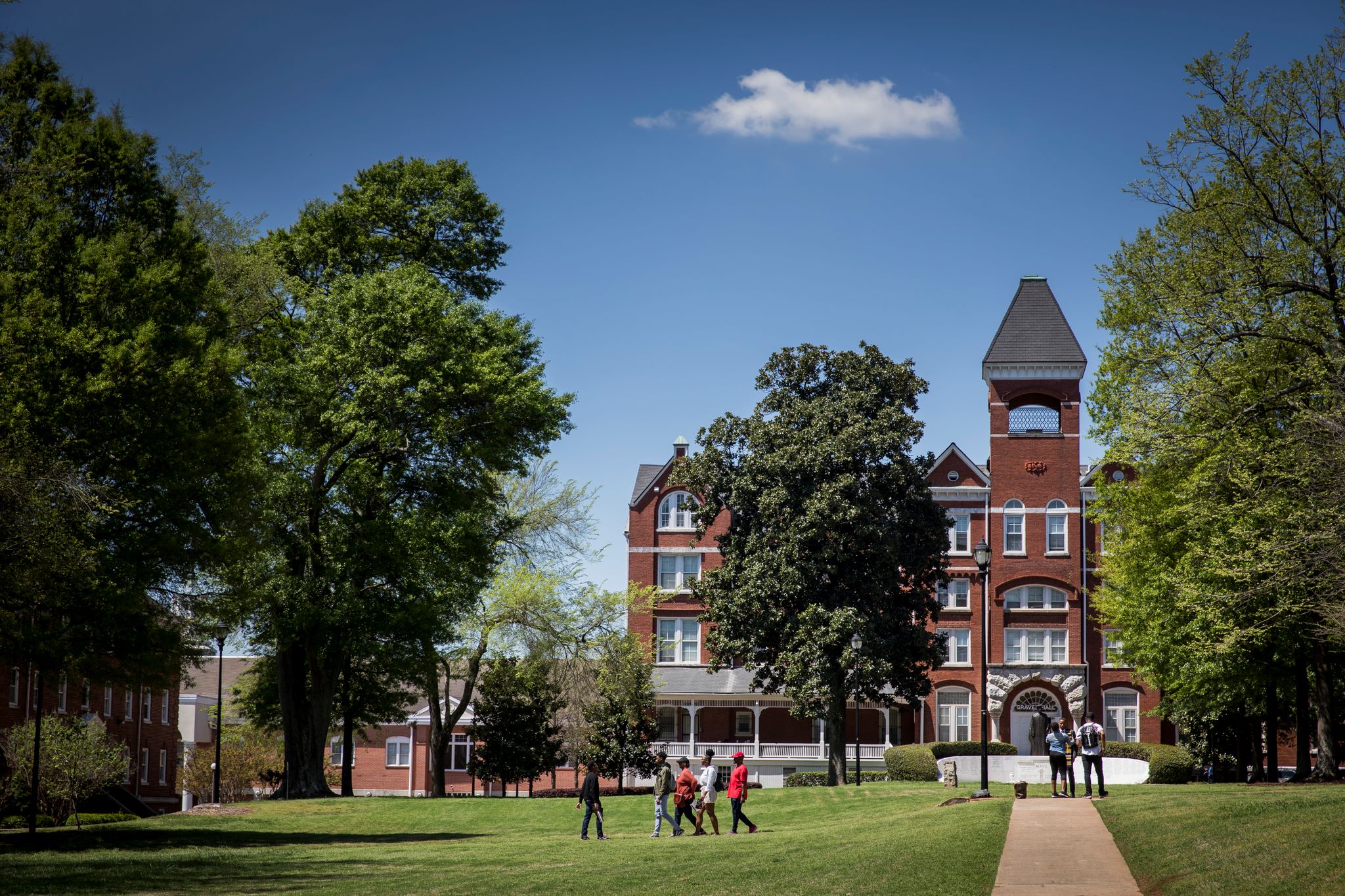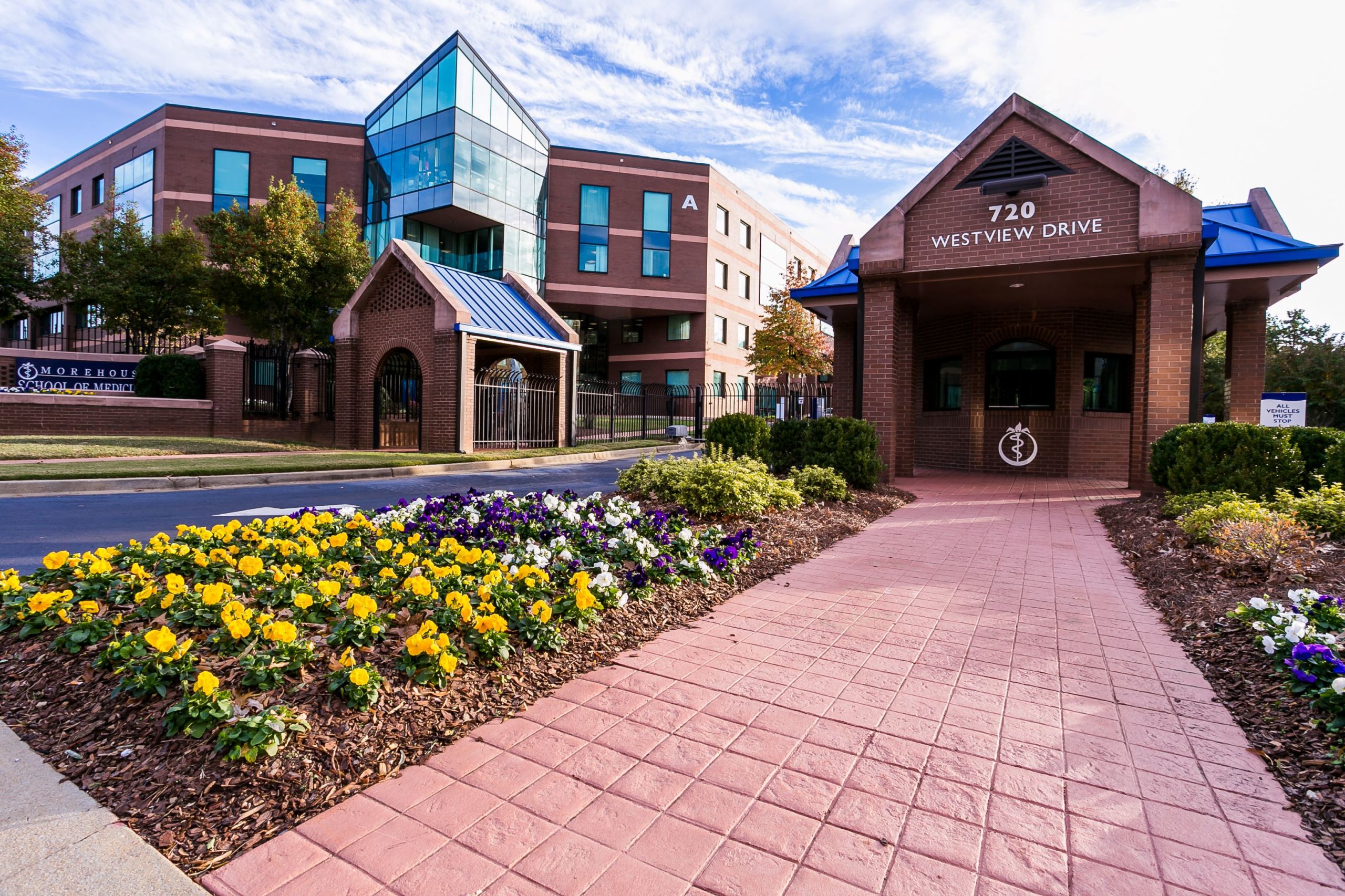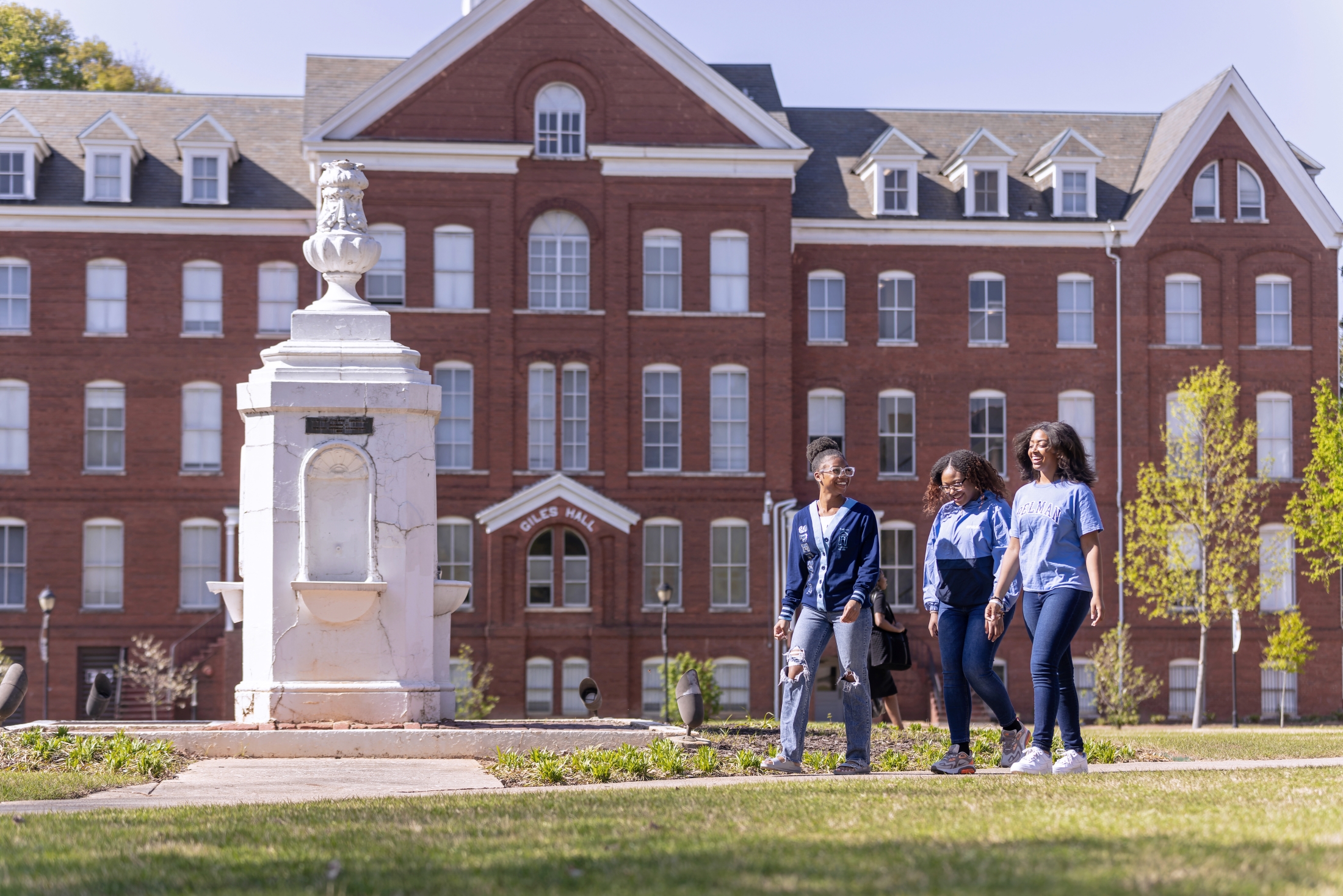Tracing the Legacy of Atlanta’s Historically Black Colleges and Universities
Published February 20, 2024
Last Updated January 6, 2025

“Which American university has the best art collection? Harvard? Yale? UCLA?” The question was posed in an October 2023 Forbes magazine article by Chadd Smith. The answer: “. . .That distinction goes to Spelman College, a historically black liberal arts college for women in Atlanta. The Spelman College Museum of Fine Art was founded in 1996 with a mission to uplift art by and about women of the African diaspora. It’s the only museum in the nation dedicated to the niche.”
Spelman College is part of the Atlanta University Center Consortium (AUC), the world’s oldest and largest consortium of historically Black colleges and universities (HBCUs). The four member institutions are Spelman, Clark Atlanta University, Morehouse College and Morehouse School of Medicine.
Just a few of many illustrious alumni from the AUC institutions include the Rev. Martin Luther King Jr. (Morehouse), film director Spike Lee (Morehouse); director and film producer Kenny Leon (Clark Atlanta); Children’s Defense Fund founder Marian Wright Edelman (Spelman); and pediatric otolaryngologist at Children’s Healthcare of Atlanta Clarice Brown (Morehouse School of Medicine).
All of AUC’s members, except Morehouse School of Medicine, date to the 19th century. Morehouse School of Medicine dates to the 20th century.
AUC and the Civil Rights Movement
Lonnie King (Morehouse College ) launched the Atlanta Student Movement along with Morehouse students Joseph Pierce, Julian Bond and others. King and other AUC students encouraged the development of the Appeal for Human Rights, written by Roslyn Pope (Spelman), through the Committee on Appeal for Human Rights. The work of these students led to the desegregation of Atlanta.
“The year was 1960. Lonnie C. King Jr., one of the leaders of the Atlanta Student Movement, refused to back down when the presidents of Morehouse College and other Atlanta University Center schools implored African American students to return to class and let civil rights organizations, such as the NAACP, fight segregation,” according to a story in the Atlanta Journal-Constitution.
“Knowing their participation in protests might get them jailed, injured or killed, the leaders thought they had a duty to keep students safe and focused on their education,” King recalled in a 2017 interview. “He didn’t listen. He would go on to lead thousands of students and adults in marches on the state capitol and Downtown businesses. The protests and an economic boycott, which cost Downtown businesses millions of dollars over the 1960 Christmas holiday, led to the desegregation of Atlanta stores and restaurants,” noted the Atlanta Journal-Constitution.
AUC and Hip-Hop

Atlanta hip-hop would not be what it is today without the Atlanta University Center, according to Atlanta Magazine. Here’s a little of what Atlanta Magazine had to say in an October 2023 article:
“It’s a bold statement, but one that rings true — the roster of artists, DJs and music executives who’ve graced the AUC campuses is a veritable who’s who of the music industry, and the AUC has been instrumental in molding the fabric of Atlanta’s hip-hop culture.
“While the hip-hop scene in Atlanta began its growth in the ’80s through pioneers like Velvetone Records, MC Shy D and Kilo Ali, it wasn’t until the presence of the Dungeon Family, So So Def Recordings, Ghetto Mafia and Big Oomp Records that hip-hop spread far and wide—weaving its way through Atlanta’s landscape like kudzu.
“Though often overlooked, the AUC played an integral role in Atlanta’s hip-hop rise for one huge reason — for years, the AUC was where you went to break records.”
Clark Atlanta University

Clark Atlanta University was the nation’s first institution to offer graduate degrees to African Americans and the first to award bachelor’s degrees to African Americans in the South. It was founded as Atlanta University in 1865 before merging with Clark College to become Clark Atlanta University in 1988. Clark College (1869) was the nation’s first four-year liberal arts college to serve African American students. Today, Clark Atlanta is a research-intensive liberal arts school. The National Negro Anthem, “Lift Every Voice and Sing,” was written by Clark Atlanta alumnus James Weldon Johnson, a key figure of the Harlem Renaissance.
HBCUs, of course, are well known for their marching bands. Clark Atlanta University is no different. Its band program includes the Mighty Marching Panthers Band, the Pep Band, the Symphonic Band, the Essence Dance Team, the CAU Drumline and the Silver Breeze Flag Corps. The Mighty Marching Panthers Band has participated in seven performances at the Honda Battle of the Bands; a national McDonald’s commercial; Turner Broadcasting System’s Dinner and a Movie; a television commercial with the Atlanta Symphony Orchestra; television shows; the Atlanta Falcons Championship Parade; and Black Entertainment Television’s Hip Hop Awards. That’s just to name a few.
Morehouse College

Morehouse is the only all-male HBCU in the United States. In the first part of the 20th century, both Morehouse and Spelman College were symbols of hope and inspiration to Southern African Americans, notes an exhibit at Atlanta History Center. Further, notes the History Center, the two institutions had a profound effect on the quality of leadership in Atlanta’s Black community.
The school started out as Augusta Institute, founded in 1867 at Springfield Baptist Church in Augusta, Ga. In 1869, the Augusta Institute moved to Atlanta’s Friendship Baptist Church and became Atlanta Baptist Seminary. In 1897, the school changed its name to Atlanta Baptist College. In 1913, Atlanta Baptist College changed its name to Morehouse College.
Morehouse College is the largest men’s liberal arts college in the United States. The school has produced 11 Fulbright Scholars, five Rhodes Scholars and five Marshall Scholars. Morehouse College advanced 24 spots to No. 100 among liberal arts colleges nationwide, according to U.S. News & World Report 2024 rankings.
Alumnus Spike Lee is well known for his support of both Morehouse and the AUC. 2024 is the second year that Lee and the Gersh Agency announced the Spike Fellows Program, a fellowship to support undergraduate students at the AUC with an interest in the film industry. Five AUC students are Spike Lee fellows and the program hopes to welcome five more students for 2024.
In addition to the Morehouse College House of Funk marching band, music at the college includes the Morehouse College Glee Club, the voice of Morehouse concerts, assemblies and off-campus events since 1911.
Morehouse School of Medicine

Morehouse School of Medicine (MSM) was founded in 1975 as a two-year basic sciences medical program at Morehouse College under the leadership of Dr. Louis Sullivan. MSM strives to improve the health and well-being of individuals and communities, increase the diversity of the health professional and scientific workforce and address primary health care through programs in education, research and service, with emphasis on people of color and the underserved urban and rural populations in Georgia, the nation and the world.
MSM is among the nation’s leading educators of primary care physicians, biomedical scientists and public health professionals. It was recognized by the Annals of Internal Medicine as the nation’s No. 1 medical school in fulfilling a social mission — the creation and advancement of health equity. MSM is accredited by the Commission on Colleges of the Southern Association of Colleges and Schools to award doctoral and master’s degrees. It is one of four medical schools in the United States that are located at an HBCU.
Spelman College

Spelman College was founded in 1881 as the Atlanta Baptist Female Seminary by Sophia B. Packard and Harriet E. Giles. The school opened on April 11 of that year in the basement of Friendship Baptist Church in Atlanta. Spelman has been recognized among the top 100 national liberal arts colleges and repeatedly is ranked the No. 1 historically Black college and university in the country in the U.S. News & World Report rankings. It is recognized as one of the leading producers of Fulbright Fellowship winners. Likewise, Spelman has been recognized by the National Science Foundation as the leading producer of Black women who go on to earn doctorates in the sciences.
Spelman has been designated by the Department of Defense as a Center of Excellence for Minority Women in STEM. More initiatives include a Gender and Sexuality Studies Institute, the first endowed queer studies chair at an HBCU and a program to increase the number of Black women Ph.D.s in economics. New majors and minors include documentary filmmaking and photography, data science, refugee studies and gaming. Spelman has collaborated with MIT’s Media Lab, the Broad Institute and the Army Research Lab for artificial intelligence and machine learning,
When Johnnetta Cole became president of Spelman in 1987, one of her priorities was to establish the Spelman College Museum of Fine Art. The museum celebrated its opening by presenting the nationally touring exhibition “Bearing Witness: Contemporary Works by African American Artists.”
To read about more Black history in Atlanta, visit our Auburn Avenue Itinerary. Here is more information about The Legacy of Atlanta’s Historically Black Colleges and Universities.
Discover More
Get to know Atlanta, and discover the best things to do around the city.
